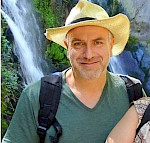Abstract:
"The present work looks into the general perception, practices and the established relation of children, belonging to the first grade of public-school system, towards nonhuman beings and Nature, taking as a main reference the several currents of Environmental Ethics. This study reflects on the causes behind the environmental crisis and points onward towards the construction of an environmental and participatory citizenship. A mixed methodology (qualitative and quantitative) was implemented, with prevalence on the qualitative dimension through semi-structured interviews. Analysis of the acquired data has allowed to answer to the proposed objectives (perceptions and practices), demonstrating the appreciation and respect of students for Nature and other life forms, in a multitude of models and considerations within Environmental Ethics. In this context, a distinct anthropocentric view was observed – Nature must be protected because it brings benefits to the human being – however, it was also possible to identify considerations that diverge from the specifically personal and human interests, in order to embrace the intrinsic values of numerous natural elements which are inserted in bio and ecocentric perspectives of Environmental Ethics. Narratives showed careful practices towards life in general and a familiar relationship with pets. Both analysis and discussion allowed us to perceive the pitfalls of Environmental Education in the public-school system where the interviews were carried out, but also the potentialities that the dimension of Environmental Ethics can offer in Education, especially in actions regarding Environmental Education. The evidences that the present study has made visible can inspire new models and proposals, particularly in Education and Environmental Education, which can amend relationship issues between human beings and Nature in order to solve environmental issues, all this in a perspective of a participatory environmental citizenship – framework of the present study which falls in the scope of the Master's program which embraces it."

